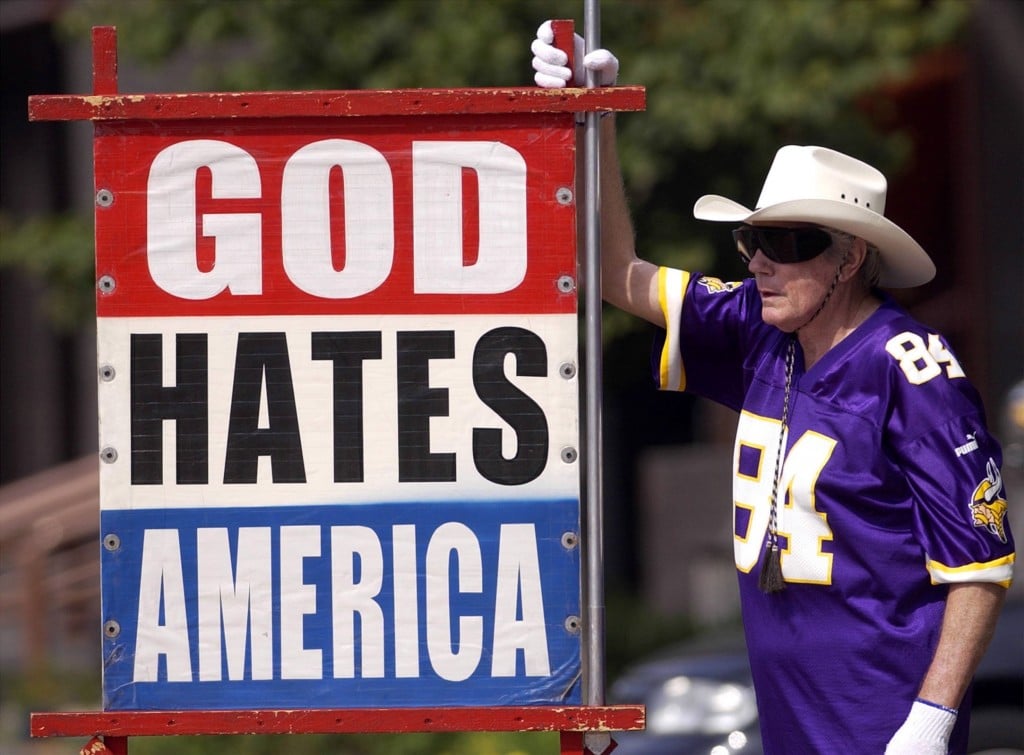Ours is a church of routine, almost down to the very timing of the jokes embedded in the sermons. There comes this moment every Sunday when Pastor Terry pauses and asks if anyone has a story to share about leading someone to Christ.
If no one responds, he tells us to keep praying because — and here the whole congregation chimes in — “Someone you know needs Jesus.”
Then Pastor Terry asks if anyone has a story to share about impacts for Christ and you’d think he asked who caught the biggest fish on the Columbia over the weekend because nearly everybody and his brother has a story to tell. Sometimes Pastor has to cut folks off short, otherwise, he’d never get to preach and well, that’s what he gets paid to do.
I’ve never really given much thought to this routine until after I attended a seminar at George Fox University this past week where New Testament scholar Scot McKnight spoke on the subject of a Salvation culture versus a Gospel culture. McKnight is at work on a book about this matter.
Americans typically think the Gospel is all about getting our sins forgiven so that when we die we can go to heaven. McKnight says that sort of thinking has hijacked the Gospel message.
Perhaps we ought to just call ourselves The Saved Ones, McKnight suggested. That makes sense if all we care about is racking up the numbers of those we’ve lead in the sinner’s prayer.
As long as we’re on this topic, I’ve a confession to make — outside of my own four children — I think the number of people I’ve actually helped with the sinner’s prayer is two, and both of those were in high school. I suppose there are some who would say I should be ashamed of that. Mark up another area in my life where I’m a better loser.
I was an avid Campus Crusade for Christ member during my college years. I carried dozens of those four spiritual law pamphlets in my backpack. I memorized them and knew how to give my own testimony in 3 minutes. I would walk the halls of the Memorial Union at OSU and prey upon the unsuspecting, offering them an opportunity to pray the sinner’s prayer. If any of them actually did that, I can’t remember. I mostly remember being stared at like I had a unicorn horn coming out of my forehead, or cream of wheat drool running down my chin.
The problem with a Salvation culture is that it focuses on who is in and who is out, McKnight said.
Yes friends, Heaven, it seems, is the most exclusive gated community known to mankind.
As McKnight pointed out, the difference between a Gospel culture versus a Salvation Culture is that the latter focuses on the four spiritual laws instead of on the four spiritual events of Christ’s life. I hear you all muttering out there, wondering if there anything that matters more than the death and resurrection of Jesus. Can I just point you to the headlines? It has to matter more. It better matter more. It better make a difference in how we should then live.
A salvation culture is generally focused on making sure people have all their paperwork in order before they’re let into the great gated community of the Heaven-bound. A Gospel culture is concerned with something other than paperwork. It’s concerned with transformation. A Gospel culture is focused on what that community will be on about.
The Salvation culture relies on the power of persuasion, McKnight said. Gospel culture is about the transformative power of story.
“We are tempted to turn the story of what God is doing in this world to a story about me and my personal salvation,” McKnight said.
Can I get an Amen on that?
McKnight didn’t say this but I will — the minute we turn the Gospel message into “us” and “them” rhetoric, the message is no longer about Christ.
Someone sent me a video this weekend. In it evangelist Joyce Meyer makes the claim that Jesus was himself the first born-again man.
Oh. Good. Grief.
McKnight, whose introduction alone contained enough thought-provoking material for five books, broke it down this way — if you want to evangelize, you don’t need the four spiritual laws or a degree in theology, all you need to do is tell somebody about Jesus.
Just tell your story. How faith has transformed your life. Talk about the life of Christ. Talk about his death. Talk about his resurrection. Talk about the hope you have because of all of that.
Some of us have the gift of evangelism — Billy Graham comes to mind. The Missionary in Double-Wide, as well.
But it takes no special gifting to speak to who Jesus is and what he has done for us. Consider Andrew. He went to his brother Simon Peter and simply said, “Come with me. I’ve met this really cool dude and I want you to meet him, too.”
There was no brow-beating involved. No chest-bumping. No promise of bigger fish or a better job. Just a simple introduction, from one friend to another.
Why is it here in America we have this need to keep score about everything?












